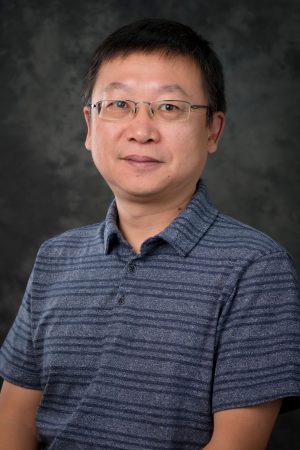Xiaohu (Mark) Tang’s Laboratory of Cancer Metabolism and Functional Genomics is using a three-year $413,090 grant from the National Institutes of Health to find ways to optimize the efficacy of targeted cysteine therapy and broaden its application for the treatment of different subtypes of breast cancer. Tang is an assistant professor of Biological Sciences. He earned his Ph.D. at The Weizmann Institute of Science. Haiying Liu, Professor of Chemistry, is a co-investigator on this project.
“Targeted cancer therapy is an emerging trend in precision cancer medicine,” Tang explains. “It uses the specific genetic makeup of a patient’s tumor to select the safest and most effective personalized treatment, instead of the traditional symptom-driven practice of medicine. Identifying and targeting metabolic vulnerabilities in cancer is a promising therapeutic strategy.”
The NIH grant will also provide research-based training for undergraduates and graduate students in Biological Sciences and the Biochemistry and Molecular Biology programs. “The work will enable students to understand the complexity of cancer and motivate them to seek novel strategies to improve health issues,” says Tang.
Tang’s lab works to characterize the deregulation of cancer metabolism and the role of nutrients during cancer initiation and progression. He is working to understand the underlying mechanisms of cancer to pursue workable alternative treatments for patients. He also hopes that a better understanding of diet-cancer interactions could establish a strategy for long-term cancer prevention.
This blog post initially appeared in the Fall 2022 Biological Sciences Newsletter. Read this article and others like it today.
